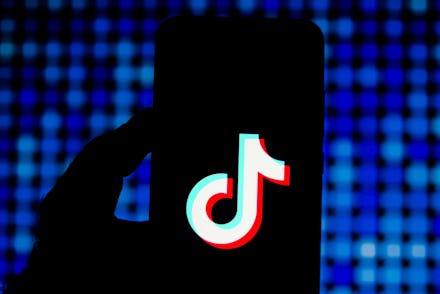TikTok encouraged throttling content from "ugly" and poor people, according to documents

TikTok has become a runaway social media hit, racking up more than one billion downloads globally. Even people who don't have the app have likely come across some of the wildly popular videos that are originally published on the platform. But according to leaked documents published in a new report from The Intercept, part of TikTok's growth may be tied to the company meticulously suppressing content from users who don't live up to TikTok's ideal image. Moderators on the platform were reportedly told to intentionally hide or limit the spread of content from creators deemed too ugly, poor-looking, or disabled.
According to the report, TikTok provided moderators with documents laying out different physical features and environmental traits that they should be on the lookout for when reviewing videos. Users who were thought to have an "abnormal body shape" — ranging from being chubby, obese, or too thin — or have "ugly facial looks," including crooked teeth, wrinkles, scars, or "facial deformities" caused by disease, were all considered subject to censorship. Similarly, moderators were told that users who film in areas that are deemed to be "slums" or "dilapidated housing" — anything that shows cracks on walls or environments considered to be dirty or messy — should be subjected to moderation. Even videos filmed in rural regions are on TikTok's chopping block, unless the scenery is considered "beautiful" enough to share. When moderators determine that videos contain any of these supposedly objectionable characteristics, they are encouraged by TikTok to bar the videos from being included in the "For You" section of the app, where TikTok curates content for people to view based on their interests.
According to TikTok, the rules presented in the documents "are either no longer in use, or in some cases appear to never have been in place." The company claimed that the rules were blunt attempts at preventing cyberbullying and negative comments on the platform, but have been out of use for some time.
The reason behind the guidelines, according to the documents, appears to be simple: to keep people on the app and attract as many new users as possible. TikTok apparently figures that the more beautiful people it pushes forward, the more people will watch. Meanwhile, those considered "unattractive" by the company could “decrease the short-term new user retention rate" if they are shown in the app's "For You" feed, according to the documents. "If the character’s appearance or the shooting environment is not good, the video will be much less attractive, not worthing [sic] to be recommended to new users,” the documents state.
This is not the first time TikTok has come under fire for attempting to restrict the spread of videos made by creators who don't fit the company's image. Last year, German digital rights publication Netzpolitik published a report showing that TikTok moderators were asked to review short clips of users and determine if they were “vulnerable to cyberbullying.” Users who were believed by moderators to be subjects of potential abuse were flagged and the spread of their videos was limited to their home countries. In certain circumstances, their content would even be prevented from showing up in the feed of their friends. When Netzpolitik examined the types of users who were being flagged by moderators, they were often users with disabilities, people who self-identified as being fat or overweight, and users who included LGBTQ identifiers within their profile.
While TikTok presented its efforts to limit the spread of these videos as a protective measure for users who may be at a higher risk of abusive comments, the new documents published by The Intercept call into question the company's true intent. It appears that TikTok has an interest in pushing only its most "presentable" creators — and ones who stay away from content that might be considered controversial or political. The recent document leak also showed the company encouraging moderators to limit the spread of videos that harm "national honor," include content about "state organs such as police," or "defame civil servants."
While the platform has been used by creatives for all sorts of purposes — including Rihanna opening an entire mansion just for TikTok stars — it seems clear now that TikTok's ideal content creator is a flawless, well-to-do person with nothing controversial to say. Anything short of that may be subject to suppression.